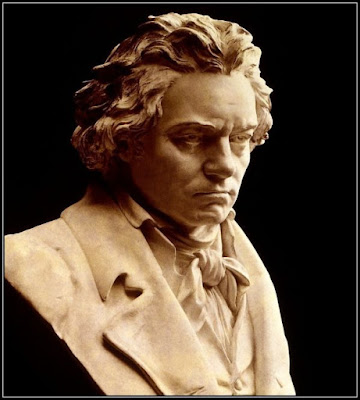The uniqueness of the German composer is not without cause. It was he who first opposed the necessity of the rules of classicism, he was the one who reversed the hierarchy of reason and emotion in the music.
His music nourished by the impulsive tendencies of a fiery temper inspired the aesthetic that was meant to dominate throughout the 19th century. The musical romance saw his birth secreted by his own automatic stylus.
His music is an unrepeatable happy essay made up of an unhappy man. In the desperation caused to him by the impracticality of his emotional desires, the mental pain was brought to an end by the awareness of the coming toatl deafness.
His inability to hear the sounds of nature, the sounds of life, the sounds of his own music did not prevent him from drawing his precious works with exquisite musical reflections, whose origins must be sought beyond human imagination. He was rightly called the "Titan of Music"!

Comments
Post a Comment